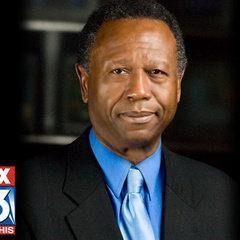I must admit that there are times when President Barack Obama’s willingness to spontaneously comment on everything from his NCAA basketball tournament picks to his opinion about the antics of rapper Kanye West seems to dilute the stature of the highest elected office in the land.
But, last week in another “Obama Unplugged” session, the chief executive did provide valuable food for thought in advancing the idea of instituting mandatory voting as “a solution to the influence of big money on politics.” His remarks were inspired by his emotional trip to Selma, Alabama, in commemoration of the 50th anniversary of the fateful march that became the catalyst for the eventual enactment of the 1965 Voting Rights Act. The president noted: “It would be transformative if everybody voted.”

As you would expect in today’s sordid political climate, reactions to his idea dutifully formed along political lines. Among the most vacuous of responses was the one from Republican presidential hopeful, Marco Rubio, who alleged that a voter’s decision to skip an election is “a form of free speech protected by the First Amendment.”
Too bad Thomas Jefferson and the rest of the country’s founding fathers aren’t around to hear Rubio’s unique interpretation of their intentions. Then again, considering the pathetic 20 percent or less voter turnouts Memphis and Shelby County have been experiencing in recent elections, maybe the Floridian has a point. There’s certainly a lot of “free speech” being exercised in these parts.
Despite Rubio’s wind-in-the-willows opinion, mandatory voting is already a reality in many countries, including Australia, Brazil, and Mexico. Why couldn’t such a system work in the land of the free and the home of the brave?
In recent years, partisan voter-suppression laws have been instituted in various states under the guise of alleged voter fraud, few of which have ever been substantiated. While the majority of the general public agrees with requiring state photo voter IDs, younger and minority voters argue it’s a selective tool for discrimination. For older, mostly African-American voters, photo IDs are seen as an effort to turn back the clock to Jim Crow restrictions, such as those in Alabama, where potential black voters were once rejected at the polls because they failed to guess the number of jelly beans in a jar or the number of bubbles on a wet bar of soap.
Why not rid ourselves of all these often racist practices to deter minority voters by using taxpayer rolls. Older citizens who don’t have photo IDs would be able to vote based on the taxes they’ve paid. Those who’ve served in the military should be automatic qualifiers. Restrictions on ex-felons who served their time for crimes not related to voter infractions should also be loosened. If you have the desire to cast a ballot, it should be made as easy as possible to do so.
The alternative path is what we’re on right now: High-powered financial interests and lobbyists are dictating how our elections are decided. Those same factions are influencing the make up of state legislative bodies. Without having to identify themselves, they spend millions of dollars in campaign ads for their chosen candidates.
We’ll continue to watch voter interest fade. Local election commissions will continue to be forced to spend taxpayer money to stage elections with miniscule turnouts. Racial polarization will only grow as the vital tenets of the once celebrated Voting Rights Act are eroded by the United States Supreme Court, which recently overturned a 2013 decision favorable to previously unconstitutional voter ID practices in Texas.
We are on the precipice of losing our democracy and what was gained through blood and tears in places like Selma. Too many of us remain passive as our country slowly drifts away from the inspired concept of one man, one vote. Voting, historically the most transformative tool for change in America, must be protected.








